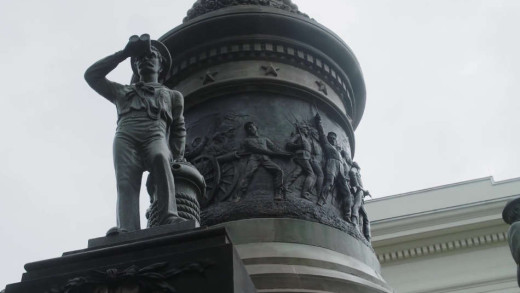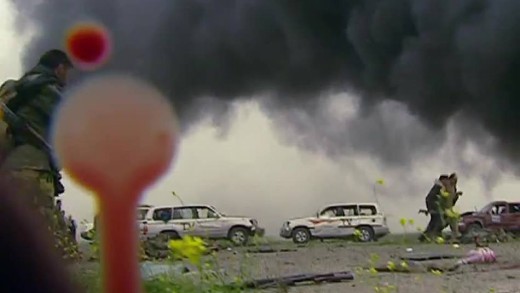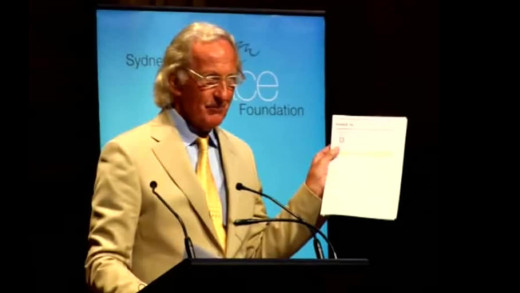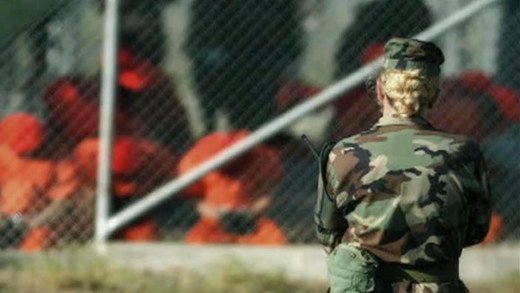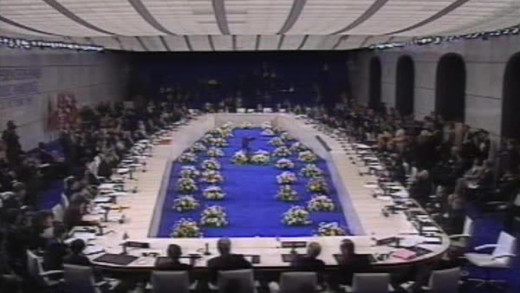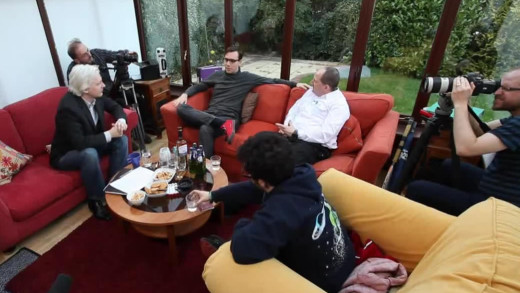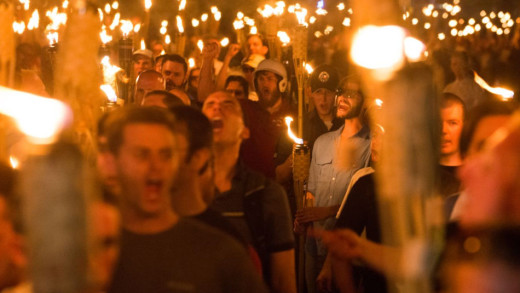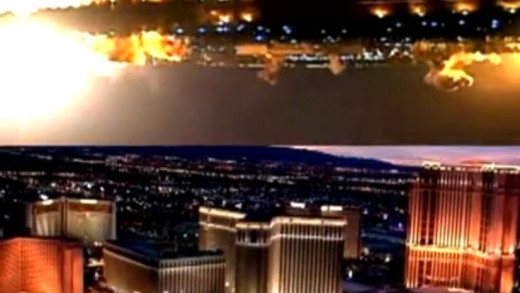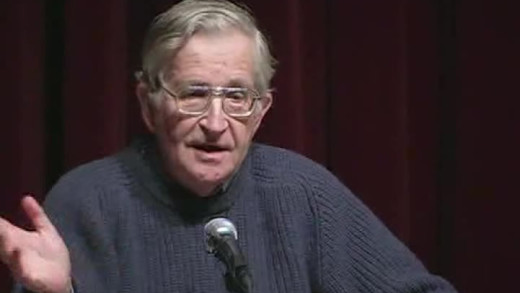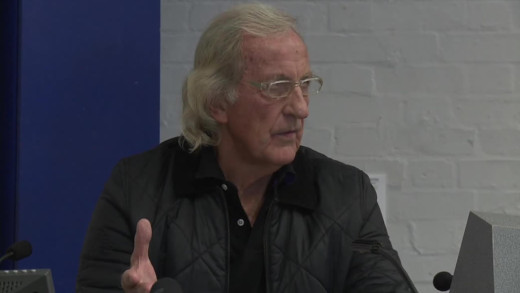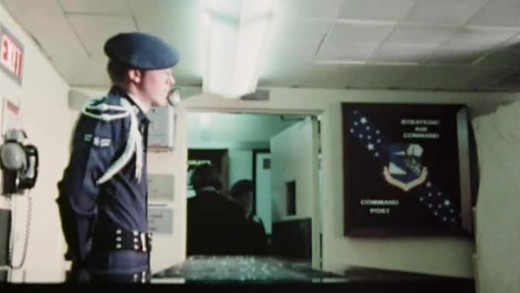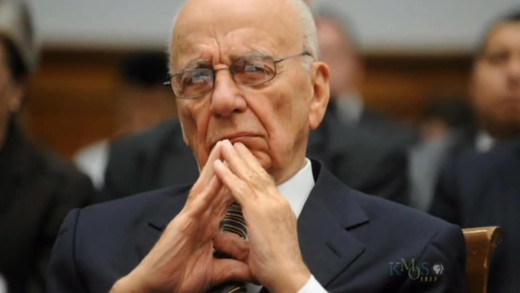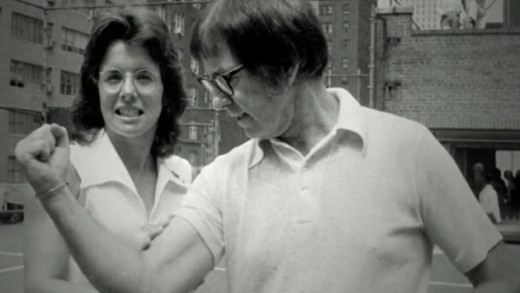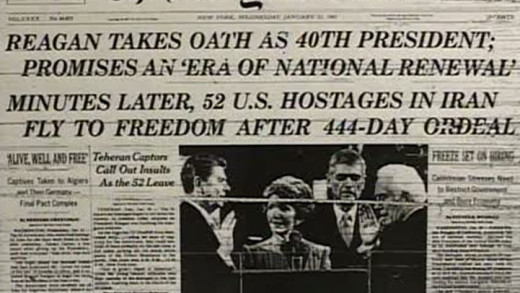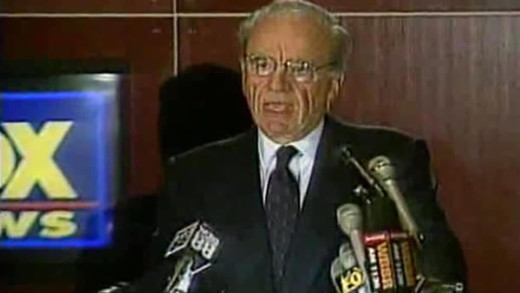After Truth
After Truth is about the growing proliferation of modern disinformation, where almost anybody with a computer and social media access can have a powerful platform without oversight, influencing the information experiences of billions of people. The melting pot is catalysed by Facebook, Twitter, Reddit, 4chan, and other websites that spread disinformation to huge audiences with a profit incentive, competing to capture everyone's attention. After Truth asks the question about where all this is heading, by exemplifying events such as Jade Helm, Seth Rich, and Pizzagate, but also profiling some major and minor personalities involved in spreading disinformation, conspiracy theories, fear, and uncertainty. With an empire in collapse, and physical reality being increasingly replaced by popular postmodern theories of "there is only subjective truth," this film not only presents the challenge of returning to what is real, but the task of stopping disinformation from continuing to divide, confuse, distract, and destroy.
In the United States, during the first year of Donald Trump's presidency, the rise of a white supremacist movement has returned, as political energy is injected into neo-confederate, neo-fascist, neo-Nazi, Klansmen, and various right-wing militia groups. More broadly, civil rights organisations such as Antifa (Anti-Fascist) and social justice groups are fighting back. Alt-Right: Age of Rage follows the development the Alt-Right, by following social justice activist Daryle Lamont Jenkins, and renowned Alt-Right leader Richard Spencer. Each movement is juxtaposed, as tensions boil over to the horrific events in Charlottesville where a young woman is killed, and 30 others injured by a self-identified neo-Nazi. Through these narratives and events, the film surveys the workings of Free Speech, deplatforming by the Left, the role of the Internet, and the consequences of fractured politics playing out in the real physical world.
Bitter Lake
Bitter Lake explores how the realpolitik of the West has converged on a mirror image of itself throughout the Middle-East over the past decades, and how the story of this has become so obfuscating and simplified that we, the public, have been left in a bewildered and confused state. The narrative traverses the United States, Britain, Russia and Saudi Arabia—but the country at the centre of reflection is Afghanistan. Because Afghanistan is the place that has confronted political figureheads across the West with the truth of their delusions—that they cannot understand what is going on any longer inside the systems they have built which do not account for the real world. Bitter Lake sets out to reveal the forces that over the past thirty years, rose up and commandeered those political systems into subservience, to which, as we see now, the highly destructive stories told by those in power, are inexorably bound to. The stories are not only half-truths, but they have monumental consequences in the real world.
John Pilger talks at a public forum in Sydney about the recent revelations of WikiLeaks and the importance of leaked information in exposing the lies and machinations of Public Relations in mainstream media and political rhetoric. Pilger demonstrates the parallels with the plight of Julian Assange and the treatment of David Hicks through the United States legal system, and also explains using recent leaked documents why state power sees investigative journalists and others as a major threat to the established order...
The discrepancies between the "War on Terror" and the facts on the ground in Afghanistan and Iraq are many. In 2001, as the bombs began to drop, George W. Bush promised Afghanistan, "the generosity of America and its allies." Now, the familiar old warlords are retaining their power, religious fundamentalism is expanding its grip and military 'skirmishes' continue routinely. In "liberated" Afghanistan, America has its military base and pipeline access, while the people have the warlords who are, as one woman says in the film, "in many ways worse than the Taliban."
John Pilger travels to Cambodia to investigate how the United Nations has allowed the Khmer Rouge regime to grow stronger. Why has Pol Pot's organisation grown stronger and more menacing since the arrival of the UN? Cambodia -- Return To Year Zero looks behind the façade of the so-called 'peace process' and asks: Has the unthinkable for Cambodia at last been made acceptable for the rest of the world?
Cambodia -- The Betrayal is the fourth follow-up to John Pilger and David Munro's series on Cambodia, the film Year Ten from 1989, which examined the hypocrisy of western geopolitics by looking at the way in which the United Nations pressured Cambodia to accept the Khmer Rouge regime as part of the United Nations peace plan.
Can't Get You Out of My Head: An Emotional History of the Modern World is a six-part series that explores how modern society has arrived to the strange place it is today. The series traverses themes of love, power, money, corruption, the ghosts of empire, the history of China, opium and opioids, the strange roots of modern conspiracy theories, and the history of Artificial Intelligence and surveillance. The series deals with the rise of individualism and populism throughout history, and the failures of a wide range of resistance movements throughout time and various countries, pointing to how revolution has been subsumed in various ways by spectacle and culture, because of the way power has been forgotten or given away.
Cypherpunks is a movement originating from the 1980s aiming to improve Internet privacy and security through proactive use of cryptography. With WikiLeaks being a recent offshoot of the many projects derived from the Cypherpunk movement, WikiLeaks editor Julian Assange talks with three activists from the Cyberpunk world to cover the topics of mass surveillance and social control being tied directly into technology as modern society progressively intertwines with technological progress...
Investigate journalist A.C. Thompson reports on the background of the white supremacists and neo-Nazis involved in the "Unite the Right" rally in Charlottesville, 2017. The event itself was chaotic and violent, amidst a backdrop of general passivity by the police and supine intelligence agencies, peaking on the day with a self-identified white supremacist ramming his car into a crowd of protesters, killing a young woman, Heather Heyer, and injuring 19 other people. Documenting Hate contextualises the events of that day by looking at the renewed trajectory of fascism in the United States, and the kinds of people attracted to its place in modern times, while profiling some of the characters from Charlottesville that lurked in the background. The second part of the investigation deals with the wake of the deadly anti-Semitic attack at the Tree of Life synagogue in Pittsburgh, showing how a neo-Nazi group, Atomwaffen Division, has actively recruited inside the United States military.
END:CIV
By examining the modern culture of industrial civilisation and the persistent widespread violence and environmental exploitation it requires, END:CIV details the resulting epidemic of poisoned landscapes and shell-shocked nations, while further delving into the history of resistance and the prospect of fighting back against such abuse. Detailed is an overview of the environmental movement analogous with the historical whitewashings of the supposedly 'pacifist' social struggles in India with Gandhi and Martin Luther King in the United States; the rise of greenwashing and the fallacy that all can be repaired by personal consumer choices. Based in part on 'Endgame,' the best-selling book by Derrick Jensen, END:CIV asks: If your homeland was invaded by aliens who cut down the trees, poisoned the water, the air, contaminated the food supply and occupied the land by force, would you fight back?
John Pilger and David Munro look behind political rhetoric to discover the hidden world of international arms dealing...
Freedom Riders follows the story of hundreds of civil rights activists who rode interstate buses into the segregated southern United States during the 1960s to challenge local laws enforcing segregation in seating. The Freedom Rides, and the violent reactions they provoked, bolstered the credibility of the American Civil Rights Movement. They called national attention to the disregard for the federal law and the local violence used to enforce segregation in the southern United States. This is the story of the numerous waves of people who challenged the mores of a racially segregated society by performing a disarmingly simple act.
Golden Rule presents a picture of today's political economy interpreted through the framework of the "Investment Theory of political Parties". The theory, first articulated in 1983 by Thomas Ferguson, is largely based on quantitative analysis of activity in the stock market and its relationship to politics--that is to say that "elections are moments when groups of investors coalesce and invest to control the state." The film takes this theory and tests it against developments in the political and social spheres of recent decades, right up to the election of Barack Obama in the United States in 2008...
From 1974, Hearts and Minds documents the events of the Vietnam War using news clips as well as directly captured footage showing actions and other happenings on the ground by the United States military during the war. The film also follows Vietnamese people themselves as to how the war affects them and why they fight back. Hearts And Minds reveals a racist and self-righteous militarism of the west, ironically in stark similarity to recent happenings in Iraq and elsewhere.
HyperNormalisation wades through the culmination of forces that have driven this culture into mass uncertainty, confusion, spectacle and simulation. Where events keep happening that seem crazy, inexplicable and out of control—from Donald Trump to Brexit, to the War in Syria, mass immigration, extreme disparity in wealth, and increasing bomb attacks in the West—this film shows a basis to not only why these chaotic events are happening, but also why we, as well as those in power, may not understand them. We have retreated into a simplified, and often completely fake version of the world. And because it is reflected all around us, ubiquitous, we accept it as normal. This epic narrative of how we got here spans over 40 years, with an extraordinary cast of characters—the Assad dynasty, Donald Trump, Henry Kissinger, Patti Smith, early performance artists in New York, President Putin, Japanese gangsters, suicide bombers, Colonel Gaddafi and the Internet. HyperNormalisation weaves these historical narratives back together to show how today's fake and hollow world was created and is sustained. This shows that a new kind of resistance must be imagined and actioned, as well as an unprecedented reawakening in a time where it matters like never before.
In Imperial Grand Strategy renowned linguist and philosopher Noam Chomsky focuses on the issue of the invasion of Iraq, and cuts through the ideological fog that surrounds the invasion and occupation, laying waste to the US government's justifications for them. In the process, Chomsky uncovers the real motivations behind US military aggression: a global imperial plan put in place long before Iraq and that will extend far into the future, unless we do something about it.
In Australia
In Australia takes a candid look at the highs and lows of Australian society, circa 1976. The film ties together the workings of media manipulation in its early days, along with the removal of Prime Minister Gough Whitlam by Governor-General coup d'état—Kerr's Cur—to demonstrate the common apathetic side of popular culture in the 'lucky country.' The film also touches on the subtlety of remnant class structures remaining from English heritage by revealing the workings of the 'Occa'—a prudish stereotype of the common person portrayed and exploited by mainstream media, revealing views on immigration and racism in a country, ironically, colonised by immigrants.
Based on the immersive theatre production and experimental work by Adam Curtis, It Felt Like A Kiss is a visual exploration of the story of an enchanted world that was built by the rise of the United States as supreme power after the Second World War, and how those living in that dream world responded to this. Using extensive archive footage from throughout the 1960s, this experimental film sets out to explore the themes and consequences of how power really works in the world since the beginning of the post-world-war era, and how the perspective of the way society is organised since that time is a political product of the ideas of that time.
John Pilger talks about the various mainstream media commonalities of today--censorship by omission, information management, Public Relations and the 'massaging of information', as well as the clever distractions such as the election of Obama as a war monger in the land of slavery, alongside figures such as Hillary Clinton and Julia Gillard as a false win for so-called 'feminist ideals.' Amongst the ongoing wars played by the United States, Britain and Australia, Media And War -- Challenging The Consensus is a renewed call to unravel complex propaganda and cut through distractions.
Mr Nixon's Secret Legacy covers the absurdity of the supposed logic behind "Mutual Assured Destruction" or MAD--a doctrine of military strategy and the national security policy of the United States during the cold war. During this time, MAD is supposedly disassembled, but replaced with a strategy called "Counterforce." This film investigates the propositions of "Counterforce," questioning the rhetoric of executing a "flexible, acceptable nuclear war."
Over half a century, Rupert Murdoch's rapacious business audacity has built one of the world's most powerful and ubiquitous media empires. But with revelations of bribery, blackmail, collusion with police and government, wiretapping and other invasions on privacy, the empire seems to be showing cracks. The scandal has prompted criminal investigations on both sides of the Atlantic and also broken open the insular world of the Murdoch family, its news executives, and the vast political elite who court their favour. Murdoch's Scandal tells the story of the battle over the future of News Corporation and the challenging of the extensive media empire...
In 1979, the people of Nicaragua successfully put an end to decades of the corrupt Somoza dictatorship whose family had been in power for more than 40 years, put there by the United States marines. Four years later, this film travels to Nicaragua to question: How can a country survive when its jungle borders hold 4000 hostile troops?
We've been told again and again that sports and politics don't mix, that games are just games and athletes should just "shut up and play." But Not Just a Game argues that far from providing merely escapist entertainment, American sports have long been at the centre of some of the major political debates and struggles of our time. By tracing the good, the bad, and the ugly of American sports culture, Not Just a Game shows how American sports have glamorised militarism, racism, sexism, and homophobia; but also traces a largely forgotten history of rebel athletes who stood up to power and fought for social justice beyond the field of play.
Oh Dearism
As the mainstream media attempts to create a simple narrative from hugely complex events, much is obviously lost in the translation—most often purposefully. This short film attempts to contrast the character of this narrative in the 1990s, where events were almost universally portrayed as 'the little guy versus the big guy' to the post Rwanda narrative of 'scattered terrible things happening everywhere, Oh Dear.' It is not that we can't actually do anything about these events, it is only that mainstream media presents these events within a framework that makes it seem that way and that in itself is a very powerful way to control society.
Oh Dearism II
A look back on the news events from 2014 reveals a confusing, muddled mess. Things are increasingly chaotic, along with the reporting of the events in the culture of 24-7 rolling news, sound-byte feeds and the Internet. The result, as we see, is not a coherent public understanding of these complex events, but more a profound mass-confusion, with discourse destroyed, which in-turn broods disengagement from the world and further atomises an already divided-and-conquered public. It is this response that is a powerful form of social control, and is by design...
Could a media system, controlled by a few global corporations with the ability to overwhelm all competing voices, be able to turn lies into truth? This documentary examines the relationship between the media, corporations, and government. In a country where the top 1% control 90% of the wealth, the film argues that the media system is nothing but a subsidiary of the corporate world. Have we entered an Orwellian world of doublespeak where outright lies can pass for the truth?
The global growth of Rupert Murdoch's media enterprise is cause for concern. The concentration of media ownership on a global scale in the hands of one man infringes on the freedom of the press by definition at the very least. But the real life example here is Fox News and it's own claim of being "Fair and Balanced" -- one only has to look at the coverage of the invasion of Iraq for example, or "commentators" such as Bill O'Reilly or Sean Hannity and the interactions they have with their "guests"; the vast political connections between Fox News, the Whitehouse and the Pentagon propaganda unit; the suppressed news stories, the censorship, the manipulation and control over the "news" by Murdoch and the president Roger Ailes themselves, not to mention the control over reporters, with former journalists alleging that Fox News asked them to lie and when they refused they were fired. Even lawsuits entailed from this with the court ruling that it is not against the law to lie on a news program...

